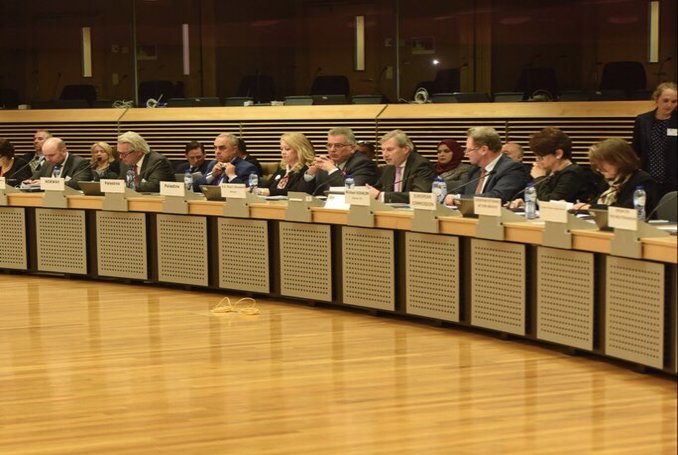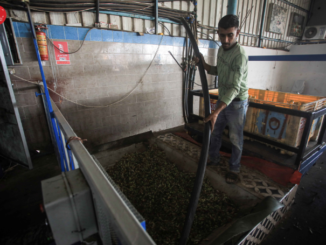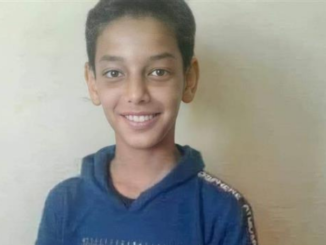
International stakeholders at Pledging Conference for the Desalination Facility Project in the Gaza Strip, which convened at the European Parliament headquarters in Brussels on Tuesday, pledged a total of €456 million out of the €562.3 million required (80% of the total cost), according to a European Union press release.
The European Commission and the Government of Palestine, in partnership with the Union for the Mediterranean (UfM), hosted in Brussels the international donor Pledging Conference to consolidate high-level political and financial support for the construction of a large-scale desalination plant and its associated water supply infrastructure in the Gaza Strip, a UfM flagship project.
All set for discussing #Palestine and especially the challenges related to #Gaza in the Ad Hoc Liaison Commitee #AHLC. Foreign Minister #EriksenSoreide and EU HRVP @FedericaMog at the helm pic.twitter.com/48biketFKM
— Norway MFA (@NorwayMFA) March 20, 2018
The Conference was opened by the Head of the Palestinian Water Authority, Minister Mazen Ghunaim and the EU Commissioner for European Neighborhood Policy and Enlargement Negotiations, Johannes Hahn, with the presence of the UfM Deputy Secretary General for Water and Environment, Miguel García-Herraiz.
It brought together country representatives and major international stakeholders, including the Islamic Development Bank (IDB), the European Investment Bank (EIB), the World Bank (WB), and the Office of the Quartet.
International stakeholders welcomed the progress achieved to date. According to WAFA, they conveyed their support to the project and pledged a total of €456 million out of the €562.3 million required (80% of the total cost), which will make possible to move forward with the next implementation steps.
The success of the conference paves the way for the launch of the design and construction phase. The EIB will launch the tendering procedure on April 15.
#Gaza EU raises half-billion dollars for project to improve Gaza’s drinking water #Haaretz https://t.co/1WOytQAyDG
— Eye On Gaza (@Eye_On_Gaza) March 20, 2018
This landmark operation will be the largest infrastructure project ever built in the Gaza Strip.
It consists of three integrated projects: the construction of a 55 million-m3 desalination Sea Water Reverse Osmosis (SWRO) plant, a North-South conveyance system and a Non-Revenue Water reduction project, as well as an associated solar power energy plant.
The project is now ready for implementation, since all significant milestones in all the preparatory stages have been completed, including on governance, completion of the required feasibility studies, as well as solutions for the energy supply and the financial mechanism for donor contributions, said the press release.
The availability of #freshwater resources per capita in Gaza is amongst the lowest in the world. Today we signed a letter of intent confirming financial and technical support to address #drinkingwater shortages for more than 2 million people in #Gaza. https://t.co/wsMlnMEAi8 pic.twitter.com/G1DXtmMvHk
— EIB – the EU bank (@EIB) March 20, 2018
The availability of fresh water in the Gaza Strip, one of the most densely populated places in the planet, is among the lowest in the world.
Currently, 2 million Palestinians in Gaza rely almost exclusively on the coastal aquifer as the only source of freshwater in the region, which is inadequate to meet demand from both a quantitative and qualitative perspective.
Only 3% of the water pumped from the aquifer and consumed by an ever-increasing population complies with the World Health Organization drinking water quality standards.
Johannes Hahn, Commissioner for Neighborhood Policy and Enlargement Negotiations said:
“This project will meet the most urgent water needs in Gaza, providing drinking water and at the same time contributing to economic growth, environmental sustainability and stability. I am proud that the EU pledged €70 million for the desalination plant plus €7.1 million for management costs. Today’s successful pledging conference takes us a step closer to make a reality of this project, improve living conditions in Gaza 9and remove obstacles to economic development there.”
(IMEMC, PC, Social Media)







